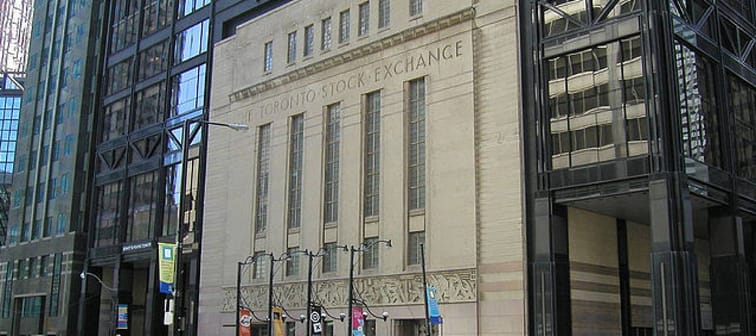Big bundles of assets
An ETF is a security that aligns with the performance of a stock index, like the Toronto Stock Exchange or S&P 500; an industry, like robotics or banking; or other assets like bonds and commodities.
ETF managers, which could be banks or private firms, purchase a combination of assets that they feel will generate positive returns for investors. A robotics ETF, for example, may contain investments in the 10 or 20 top companies in the field, and tens of thousands of shares of each one.
When you purchase ETF shares, which trade on public markets just like stocks, you get exposure to every stock in the fund, from established, high-performers to young companies with growth potential. The bet you’re making is that the overall performance will be stronger — and less risky — than if you threw your cash behind a few isolated companies.
ETFs may sound a lot like mutual funds, which are also large bundles of assets investors can secure a piece of. A key difference is how they’re traded: Shares in ETFs are sold on public stock exchanges, the same way shares in individual companies change hands, so their values can change daily. Mutual funds are not traded on exchanges.
If you have a brokerage account that allows you to purchase stocks, you can use it to buy shares of an ETF. If not, you can open one in a few minutes online. Some services provide tools to help you evaluate which ETFs interest you.
Empower your investments with Qtrade
Discover Qtrade's award-winning platform and take control of your financial future. With user-friendly tools, expert insights, and low fees, investing has never been easier.
Start Trading TodayDifferent kinds of ETFs
In addition to coming in different varieties based on industry and asset type, ETFs vary based on how they’re managed.
A fund that tracks an index, or owns shares in an index’s top-performing companies, may not need to be actively managed. An industry- or commodity-specific fund may require more oversight by a manager.
Knowing whether an ETF is actively or passively managed is an important detail, as actively managed funds will often cost you more in fees.
Typically, however, ETFs are a cost-effective means of getting a bite of the stock market. For the cost of a single Amazon share, for example, you can literally buy hundreds of shares in funds that invest in most, if not all, of today’s tech giants (and probably a few of tomorrow’s). And by buying shares in an ETF, you won’t have to pay the commission or transaction fees you would if you purchase shares in individual companies.
You won’t necessarily need to sell your ETF shares to generate a profit, either. If a company pays dividends to investors who hold their stock, you, as a shareholder in the fund, are also entitled to a proportion of any dividends the fund’s managers receive. You also might be in line for additional revenue if the fund is sold off while you’re a shareholder.
Trade Smarter, Today
Build your own investment portfolio with the CIBC Investor's Edge online and mobile trading platform and enjoy low commissions. Get 100 free trades and $200 or more cash back until March 31, 2025.







